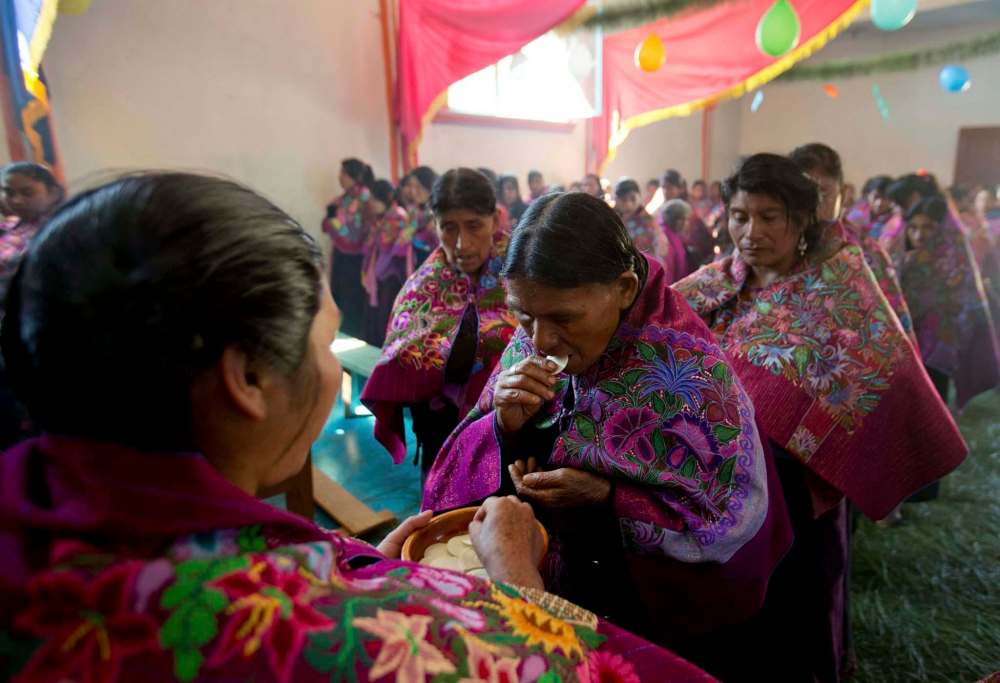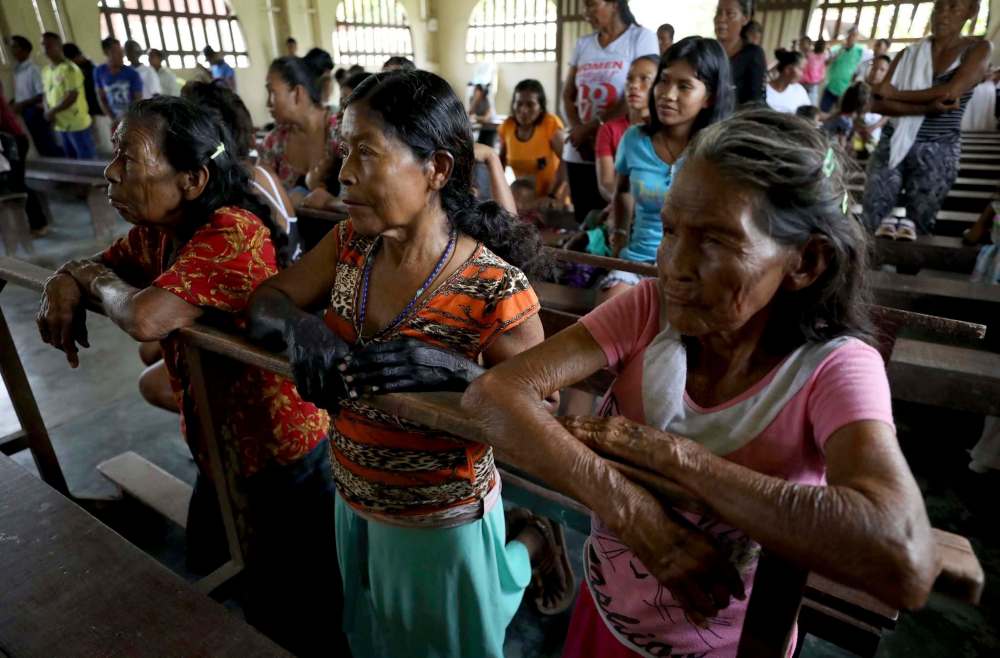God has spoken to Indigenous Peoples for thousands of years, scholar says
God has spoken to Indigenous Peoples for thousands of years, scholar says
Advertisement
Read this article for free:
or
Already have an account? Log in here »
To continue reading, please subscribe:
Monthly Digital Subscription
$1 per week for 24 weeks*
- Enjoy unlimited reading on winnipegfreepress.com
- Read the E-Edition, our digital replica newspaper
- Access News Break, our award-winning app
- Play interactive puzzles
*Billed as $4.00 plus GST every four weeks. After 24 weeks, price increases to the regular rate of $19.00 plus GST every four weeks. Offer available to new and qualified returning subscribers only. Cancel any time.
Monthly Digital Subscription
$4.75/week*
- Enjoy unlimited reading on winnipegfreepress.com
- Read the E-Edition, our digital replica newspaper
- Access News Break, our award-winning app
- Play interactive puzzles
*Billed as $19 plus GST every four weeks. Cancel any time.
To continue reading, please subscribe:
Add Free Press access to your Brandon Sun subscription for only an additional
$1 for the first 4 weeks*
*Your next subscription payment will increase by $1.00 and you will be charged $16.99 plus GST for four weeks. After four weeks, your payment will increase to $23.99 plus GST every four weeks.
Read unlimited articles for free today:
or
Already have an account? Log in here »
Hey there, time traveller!
This article was published 21/12/2019 (2130 days ago), so information in it may no longer be current.
At Christmas, Christians celebrate how they believe God came into the world through Jesus. But before that event 2,000 years ago in Palestine, had God also been speaking to Indigenous people, who have been living in North America for over 12,000 years?
That’s the question I posed to my friend Terry Leblanc, an Indigenous Christian leader and director of the North American Institute for Indigenous Theological Studies.
While affirming the traditional Christmas story of God breaking into the world in a particular place and time to provide redemption and restoration for all creation, Leblanc notes this doesn’t mean God wasn’t also speaking to Indigenous people before that event.

While the history we read about in the Bible was unfolding, “there was an historical timeline of equal length unfolding here and in other places of the globe,” he says.
This doesn’t mean “God, as Jesus, was here (in North America),” he adds, although he says there are Indigenous prophecies “of the arrival of the message of Jesus.”
But God “as Creator and God as the Spirit were here,” he says.
If that’s the case, what was God saying to the Indigenous people of North America?
According to LeBlanc, God was speaking about things like the seven teachings: love, respect, courage, honesty, wisdom, humility and truth.
As an “Indigenous follower of the Jesus way,” as he describes himself, the biblical story qualifies “the notion of the Creator’s sufficient revelation to Indigenous Peoples in the past,” he says.
“For whatever reason, God chose to enter God’s own creation in human form to perform the ceremony of redemption and restoration, through a particular people group, from a particular land, at a particular time, and that this was for all of creation.”
When Europeans arrived on this continent, they assumed North America’s Indigenous people were heathens — people with no prior knowledge of God whatsoever.
But they did know God, Leblanc says; they just had a different way of understanding and expressing it through their stories.
But Christian missionaries assumed those stories “were irrelevant and/or replaceable by the biblical narrative, instead of recognizing the universal applicability of those (Indigenous) narratives,” he says.
Blinded to the Creator’s presence among Indigenous people, and conflating Christianity with their own culture, the European missionaries sought to convert them.
“It is this theologically aberrant understanding that has been thrust upon Indigenous Peoples,” he says.

But Indigenous people aren’t the only ones who need to decolonize the understandings thrust upon them, he suggests; it’s also something non-Indigenous Christians need to do. And Christmas might be a time to get started.
As Leblanc puts it: “Decolonization is just as needed for Eurocentric Christianity at Christmas as it is for Indigenous Peoples. Only then will we be able to see a Christ-filled celebration that is not devoid of culture, but rather expressive of the intent of God through all cultures that have emerged through time.”
For him, that intent is “the redemption and restoration of all things… whatever hinders or redirects that intention needs either to be decolonized or set aside entirely.”
So, what would it mean for non-Indigenous Christians to decolonize Christmas? The first thing is to recognize how it’s been colonized so completely by Eurocentrism, and by our culture of consumerism.
The next thing would be remembering the radical trans-cultural idea behind God’s coming to Earth: to challenge and upend all rulers, structures and economic and political systems.
Finally, Christians can also remember how Jesus, during his ministry, challenged and upset the political and religious elite of his day, overturning cultural and religious norms and theological certainties by eating with prostitutes, befriending tax collectors, widening the circle of inclusion and redefining the concept of neighbour.
One other thing: Maybe this Christmas would also be a good time to ask the original inhabitants of this land what the holiday means to them — and what they think the Creator is saying to all of us today.
faith@freepress.mb.ca
The Free Press is committed to covering faith in Manitoba. If you appreciate that coverage, help us do more! Your contribution of $10, $25 or more will allow us to deepen our reporting about faith in the province. Thanks! BECOME A FAITH JOURNALISM SUPPORTER

John Longhurst has been writing for Winnipeg's faith pages since 2003. He also writes for Religion News Service in the U.S., and blogs about the media, marketing and communications at Making the News.
Our newsroom depends on a growing audience of readers to power our journalism. If you are not a paid reader, please consider becoming a subscriber.
Our newsroom depends on its audience of readers to power our journalism. Thank you for your support.
The Free Press acknowledges the financial support it receives from members of the city’s faith community, which makes our coverage of religion possible.


